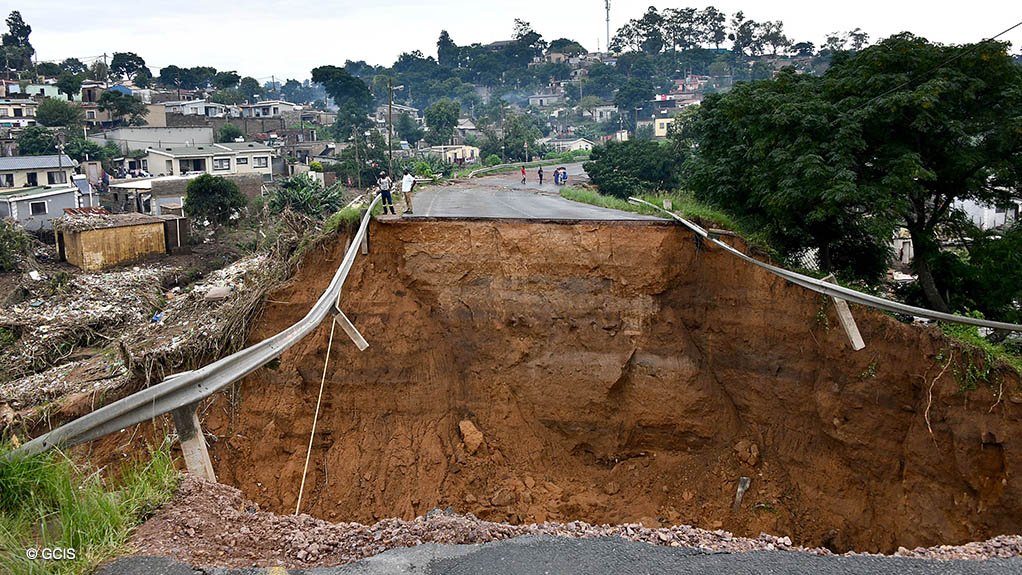Proactive measures are needed to ensure the safety and sustainability of communities, and building resilient infrastructure is not just about new projects, but maintaining and adapting current systems to ensure they can cope with future demands, says industry organisation Consulting Engineers South Africa (Cesa) CEO Chris Campbell.
Integrated efforts from government, developers and the community are essential to create resilient infrastructure capable of withstanding the challenges posed by climate change, he avers.
Further, infrastructure standards must be revised to cope with more frequent and severe weather events, he says.
For example, one of the pressing issues is the construction of informal settlements near water courses, making the settlements highly vulnerable to flooding.
"People building informal settlements close to water courses do so out of necessity, but this makes them highly vulnerable," Campbell says.
Additionally, even high-value properties built close to water bodies for scenic views are at great risk, emphasising the importance of adherence to revised building regulations.
"There have been revisions of standards regarding how close structures should be built to water courses. These standards are being updated to reflect the increased intensity and frequency of severe storms.
"Traditional statistical models, which predict storm events every 100 years, are no longer sufficient. These flood lines now have to move further back to ensure safety and resilience," he points out.
"Local authorities play a vital role in this transition to resilient infrastructure. It's not just developers who are at fault and local authorities must enforce compliance with updated bylaws and building regulations. Failure to do so will result in more human catastrophes and property losses," he avers.
EMAIL THIS ARTICLE SAVE THIS ARTICLE ARTICLE ENQUIRY
To subscribe email subscriptions@creamermedia.co.za or click here
To advertise email advertising@creamermedia.co.za or click here











